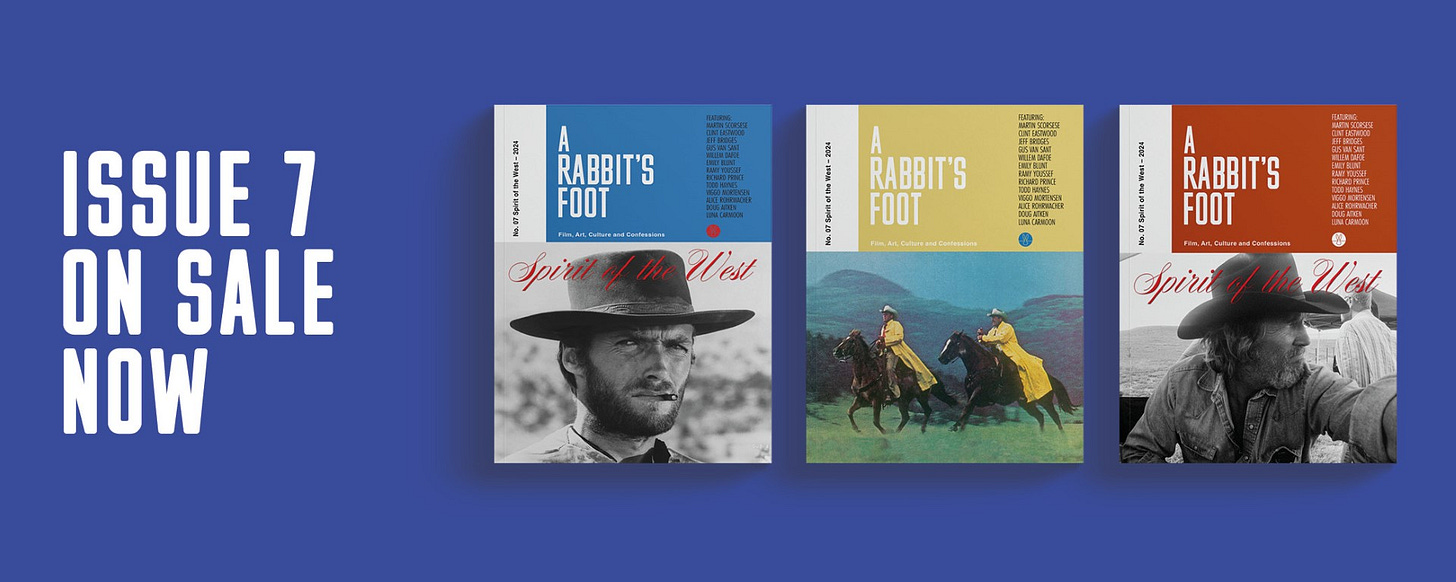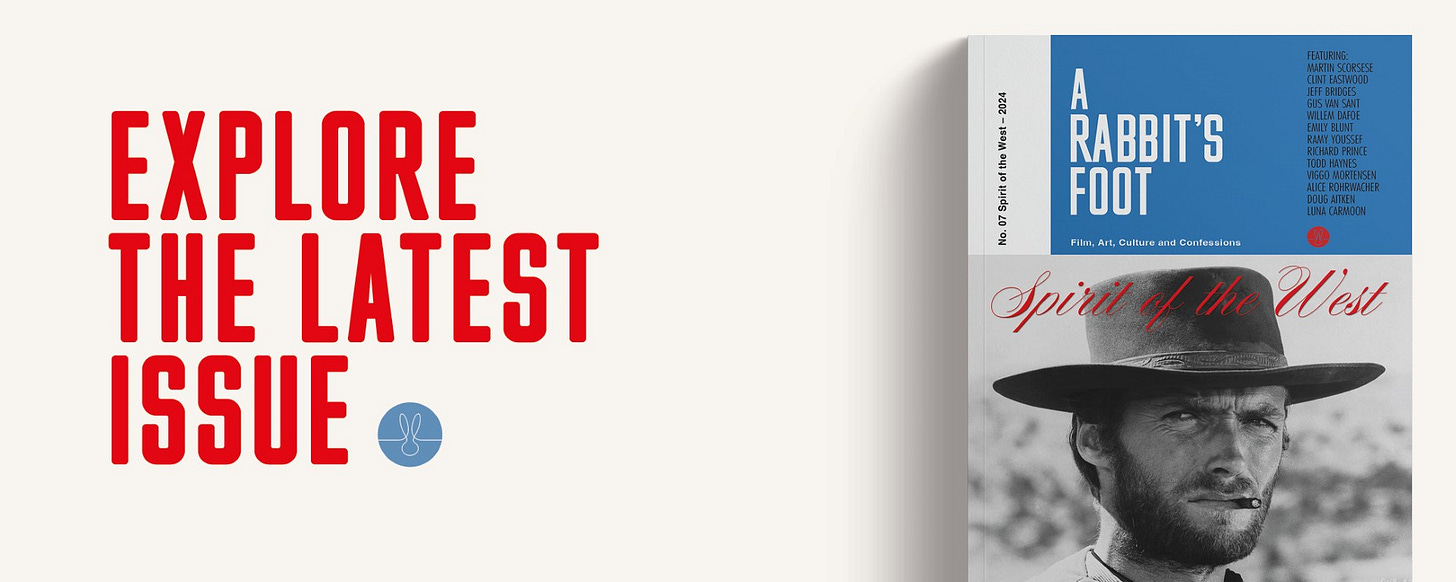Jeff Bridges, Alice Rohrwacher's La Chimera and Desert Hearts
Essential film reading from A RABBIT'S FOOT this week.
Jeff Bridges on his decades-long love affair with photography
What you might not know about the Hollywood legend Jeff Bridges is that he is as obsessed with the still image as he is with the moving one. Bridges first fell in love with the act of taking photos when his wife gifted him an analogue camera which he would use to shoot on the set of Starman. It was a Widelux F8: an all-time favourite of Bridge’s, and a camera you’ll see mentioned plenty in the conversation below. “The Panoramic swing-lens seems to capture the way the human eye sees,” he describes, “as though the camera has peripheral vision.” He speaks to A RABBIT’S FOOT about the crossroads between photography and cinema alongside exclusive images (with some very familiar faces) from the photographer’s archive.
Alice Rohrwacher’s La Chimera is a powerful meditation on materialism and memory
Alice Rohrwacher’s work is always mysterious, but every frame of her latest feature La Chimera feels bewitched. This is a supernatural tale that treats the spiritual and ancient worlds with respect, and with a thrilling plot that involves grave-diggers, crooks, beach parties, female elysiums, and an Englishman abroad. Josh O’Connor plays Arthur, a mysterious character that has a relationship with the Tuscan tombaroli. His divination skills aid him in discovering tombs filled with precious artefacts that he and his crew sell to the upper crust of society. With A RABBIT’S FOOT, Alice Rohrwacher discusses her inspirations and motivations for the film. “We are a society that, even if we bake a cake, we’re going to post it somewhere so everybody can see,” says Rohrwacher. “I find it more interesting that the Etruscans created beautiful artefacts not destined to be admired.”
How Desert Hearts used the Western to pioneer a new vision for queer film
Frequently hailed as a pioneering feature, Donna Deitch’s Desert Hearts premiered in 1985, when realistic films centering around the queer experience were few and far between. With nearly six years in development, Desert Hearts was groundbreaking not just in its subject matter but for the film’s female lead, cast, and crew. Directed and produced by Donna Deitch (who also co-wrote the film with Natalie Cooper), Desert Hearts tells the story of Vivian Bell (Helen Shaver) a prim New York English professor who travels to Reno to finalise her divorce, following a separation from her husband. “The change in the political landscape mirrors Vivian’s change in circumstance,” writes Allegra Handelsman, “and the irony of her finding sexual freedom only after leaving a large seemingly bohemian metropolitan city for the desert.”










